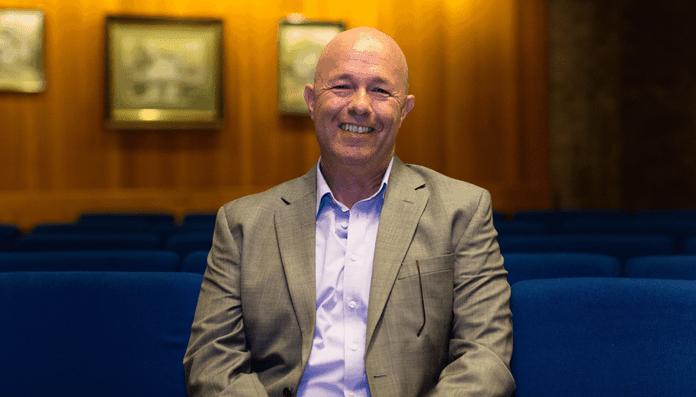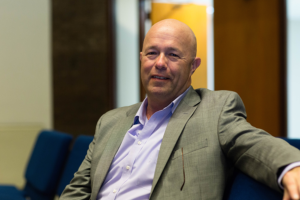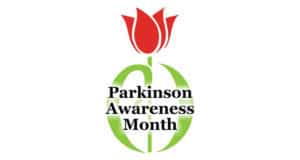
JACKSON – He said, matter-of-factly, there are things he won’t be able to do with his new granddaughter, due in September. She’s the first grandchild for him and his wife.
“When she told me, I started crying immediately out of happiness, but out of sadness also, because I realized I’m not going to be able to do the same things with my grandchild that I did with my own children. It doesn’t mean I’m not going to have to have a good time and enjoy it. You can’t feel sorry for yourself. You just have to move forward and stay strong.”
Councilman Barry Calogero confirmed his diagnosis two-and-a-half years ago, though he’s certain he’s had it longer: Parkinson’s disease. He noticed himself shuffling his feet and on occasion slurring his speech. Several visits to his physician and blood tests revealed nothing out of the ordinary.
“’It’s nothing, it’s nothing, it’s no big deal,’ he said,” Calogero recalled.
At a wedding, a friend the Calogeros hadn’t seen in three years asked Barry’s wife, Gina, if he had had a stroke. Gina was taken aback. But the friend pointed out that Barry’s lip was drooping, his speech slurred and slow. A 30-year reunion later on had friends and acquaintances asking the same thing.
Calogero was not the same person they all knew.
Those repeated concerns drove Calogero to a neurologist, who immediately diagnosed him with Parkinson’s. Further tests confirmed that.
“People say it’s a terrible thing, because I’m only 55 years old. I look at it and say, ‘People have cancer, people have much more significant ailments than Parkinson’s. And I’ll deal with it and I’ll survive and I’ll fight and I’ll advocate for it. That’s why I’m so happy the mayor and council allowed me to read the proclamation.”
April is Parkinson’s Awareness Month, and as he did last April, Calogero read into the minutes a proclamation for the month.

According to the National Parkinson’s Foundation, Parkinson’s is a neurodegenerative disease caused by decreasing levels of the neurotransmitter dopamine. Less dopamine means the body cannot adequately regulate movements and emotions. While the disease itself isn’t fatal, complications arising from it often cause death. The Centers for Disease Control name Parkinson’s the 14th leading cause of the death in the United States.
While doctors work to manage symptoms and maintain the quality of life for patients, there is no cure for Parkinson’s.
There is no “normal” progression of the disease, but there are five stages that doctor’s use to describe its progression. Calogero is in stage one, which the National Parkinson’s Foundation describes as “the person has mild symptoms that generally do not interfere with daily activities. Tremor and other movement symptoms occur on one side of the body only. Friends and family may notice changes in posture, walking and facial expressions.”
 “I think I’m doing great. I think most people haven’t noticed it yet,” Calogero said. He is taking two medications, Carbidopa and Levodopa, the first to treat the nausea caused by the second, which synthesizes dopamine.
“I think I’m doing great. I think most people haven’t noticed it yet,” Calogero said. He is taking two medications, Carbidopa and Levodopa, the first to treat the nausea caused by the second, which synthesizes dopamine.
The drugs help, but Calogero has realized he has to slow down and can’t do what he used to do. He was very active and into sports. Exercise does help with Parkinson’s, he said. He’s eating healthier too.
Calogero is looking to create a foundation next year to make people aware of Parkinson’s. But for now, he wants to encourage those with the disease to do a lot of research and understand their diagnosis.
“Live every day like it’s your last. Enjoy life. I went to the beach with my wife today and I said to her, the way I’m looking at things, I’m not looking at the badness of things, I’m looking at the goodness of today,” Calogero said. “If anything, that’s what my advice would be. Don’t worry about tomorrow. Enjoy today.”






